Maca is a plant native to Peru. Its root has long been used as a traditional remedy by some people for certain health concerns, including infertility and reduced libido. Still, additional research is required to confirm these effects.
For millennia, maca has been consumed by certain communities in Peru both as a food source and for medicinal purposes.

Over the past few decades, interest in maca has grown. This article describes what maca root is, outlines possible advantages, and addresses whether it’s safe to include in your diet.
What does maca root do for the body?
The maca plant, scientifically known as Lepidium meyenii and sometimes called “Peruvian ginseng,” belongs to the cruciferous family alongside vegetables like broccoli, cauliflower, cabbage, and kale.
Native to the high-altitude Andean plateaus, maca has been farmed for over 2,000 years and thrives in the harsh climate of the Peruvian Andes at elevations above 4,000 meters (m) or 13,123 feet (ft). Traditionally, Andean communities consumed maca as food or used it medicinally to address respiratory complaints and rheumatic conditions.
Interest in maca products has risen partly because of claims they might boost libido and fertility. Today, maca is cultivated in various regions around the world, including China’s Yunnan province.
Maca contains several beneficial constituents, such as:
- fiber
- various vitamins and minerals
- bioactive molecules like macamides, macaridine, alkaloids, and glucosinolates
Nevertheless, research findings have been inconsistent, and more studies are necessary to substantiate many of these claims.
Below are some of the possible benefits associated with maca.
SummaryPeople in Peru have used maca for thousands of years both as nourishment and as a traditional therapy.
Maca may help with libido, sexual function, and fertility
Whether maca truly benefits low libido, sexual dysfunction, or infertility in men or women remains uncertain. Available studies have reported mixed outcomes.
What does maca do for male sexual function?
Although many maca studies have not involved human participants, some research indicates it might help men with diminished sexual desire or libido.
A study in male mice suggested that combining maca with Chinese chive seed (Allium tuberosum) improved erectile dysfunction.
A 2020 trial reported that taking 2 grams (g) of maca daily for 12 weeks might increase sperm concentration compared with placebo. However, this study did not observe a significant change in sperm motility between the maca and placebo groups.
What does maca root do for female sexual function?
One trial including 45 women with antidepressant-induced sexual dysfunction indicated that 3,000 milligrams (mg) of maca root daily for 12 weeks significantly improved sexual function and libido versus placebo.
Still, larger human trials are necessary to better determine maca’s effects on female libido and sexual performance.
SummaryLimited evidence suggests maca may enhance sexual desire, erectile function, and fertility, but research is currently scarce.
Maca may help relieve symptoms of menopause
Menopause is a natural life stage marking the permanent end of menstrual cycles.

Some research suggests maca could help people undergoing menopause by easing certain symptoms, such as hot flashes and disrupted sleep.
SummaryPreliminary findings indicate maca might reduce some menopausal symptoms, but evidence is insufficient to confirm its effectiveness.
Maca may improve mood and energy
Limited data indicate maca might boost energy and positively influence mood.
Animal studies in mice reported that maca helped counteract exercise-induced fatigue, and a 2022 study in mice reached similar conclusions.
A 2022 study in young adult women also suggested maca extract could decrease feelings of fatigue. Additionally, a 2016 trial with 175 participants living at low or high altitudes found that consuming 3 g of red or black maca daily for 12 weeks improved mood and energy scores compared with placebo.
However, the body of evidence is still too limited to draw definitive conclusions about maca’s effects on mood or energy.
SummarySome research proposes that maca may help enhance energy and improve mood, but more studies are needed.
Other potential health benefits of maca
Human research on maca’s possible health advantages is limited.
Nonetheless, early findings from laboratory and animal experiments in mice and rats suggest maca might offer benefits for:
- cognitive function
- management of benign prostatic hyperplasia (BPH)
- wound healing
- anti-inflammatory activity
- providing prebiotic compounds that could support gut health
Remember that these potential effects have not been proven in humans, and clinical research would be required to verify them.
SummaryPreliminary animal research suggests maca may have potential benefits for prostate health, brain function, and skin repair.
How to use maca
Maca is edible and is also sold in forms such as powders and capsules.
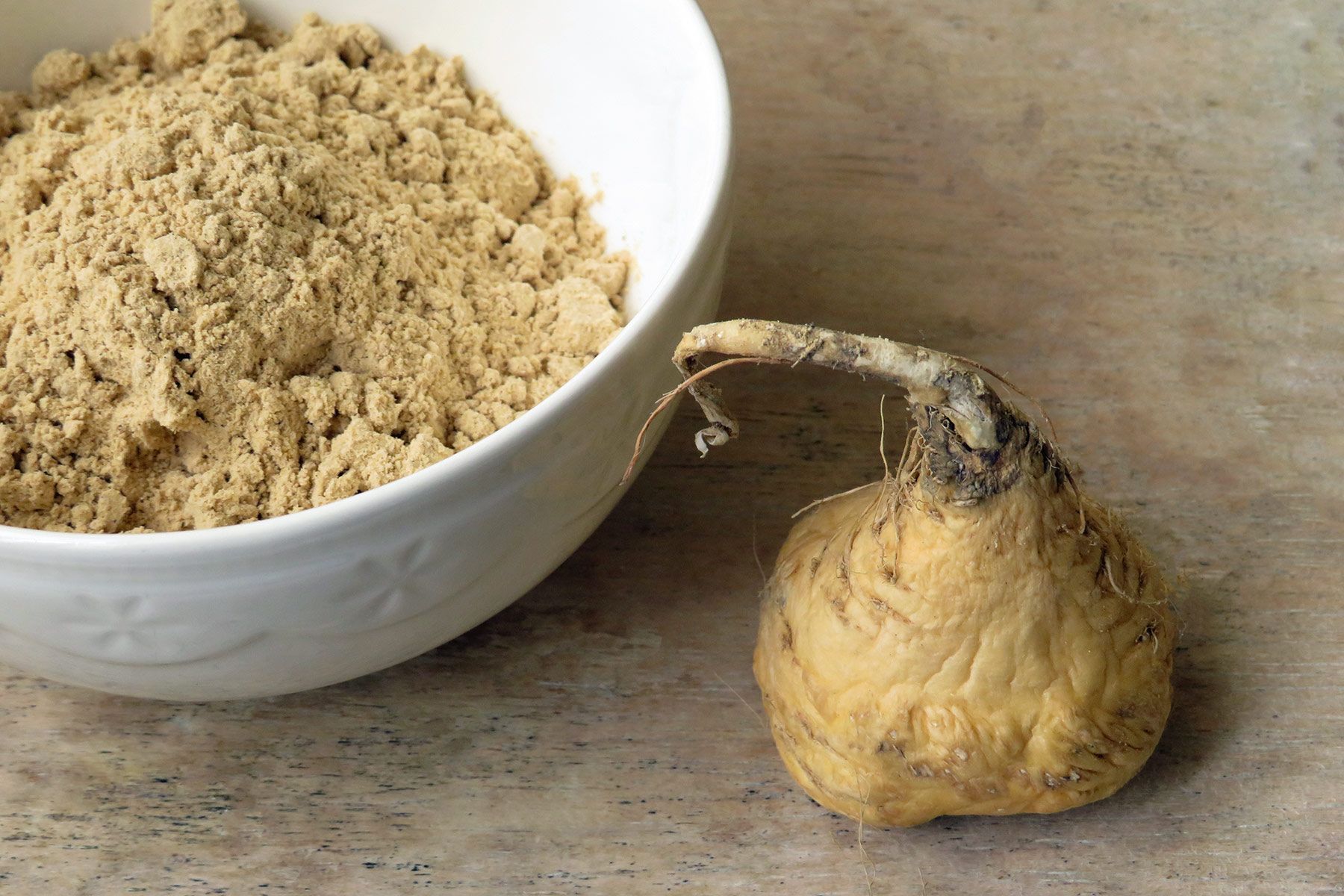
Maca powder can be mixed into smoothies, oatmeal, baked goods, energy bars, and more. Its nutty, butterscotch-like flavor complements many sweeter ingredients.
An optimal medicinal dose of maca has not been firmly established. However, doses used in studies of maca root powder typically fall within the range of per day.
If you want to choose a higher-quality maca product or receive personalized dosing guidance, consult a qualified healthcare professional, like a registered dietitian or physician. Because supplements are not regulated as strictly as medications, selecting brands verified by third parties helps ensure product contents match the label.
Read more about how to choose high quality supplements.
SummaryMaca root powder is widely accessible and simple to incorporate into meals.
Frequently asked questions
What happens if I take maca every day?
Maca is generally considered safe as part of a normal diet. Studies have found it safe as a supplement for up to for periods not exceeding four months.
However, one report described a case in which a woman’s blood lead level rose after taking a maca supplement.
Who should not take maca?
Investigate any product before use, especially if pregnant or breastfeeding, since safety during pregnancy or lactation is not established. Talk with your healthcare provider before trying maca or any supplement, particularly if you have existing health conditions or take medications.
Does maca increase testosterone?
Maca does not appear to raise testosterone levels. Available research indicates no significant difference in testosterone between people who used maca root and those who did not.
How long does it take for maca to work?
How quickly you might notice benefits depends on the specific outcome you’re targeting. Various studies have reported observable improvements after several weeks of maca use.
The bottom line
Although research into maca’s health effects is limited, some studies suggest maca supplements may help certain aspects of sexual health and fertility, ease menopausal symptoms, and improve mood for some individuals.
However, more rigorous research is needed before maca can be widely recommended for treating health conditions or symptoms.
If you’re considering maca, consult a healthcare professional first. They can advise whether maca is appropriate for your individual health needs.

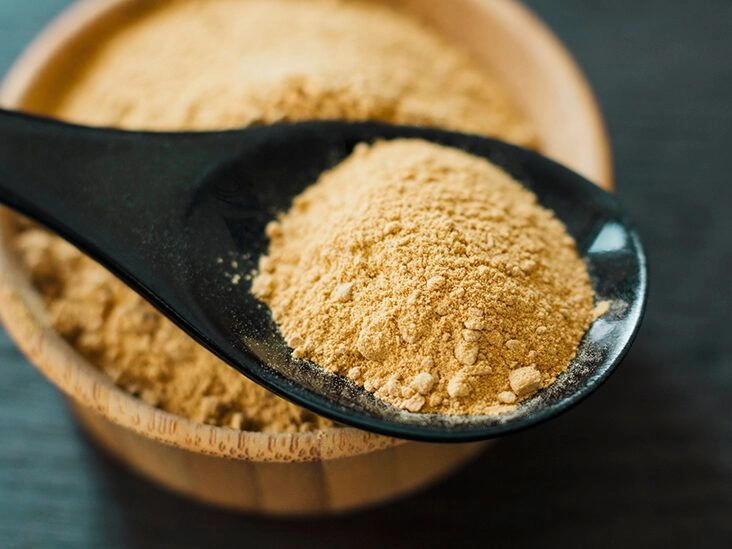



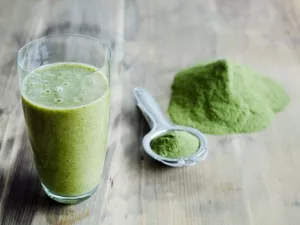












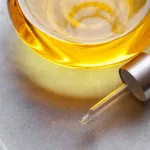
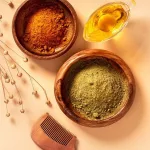





Leave a Reply
You must be logged in to post a comment.